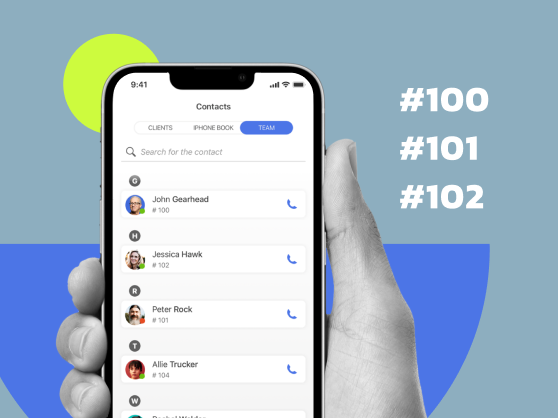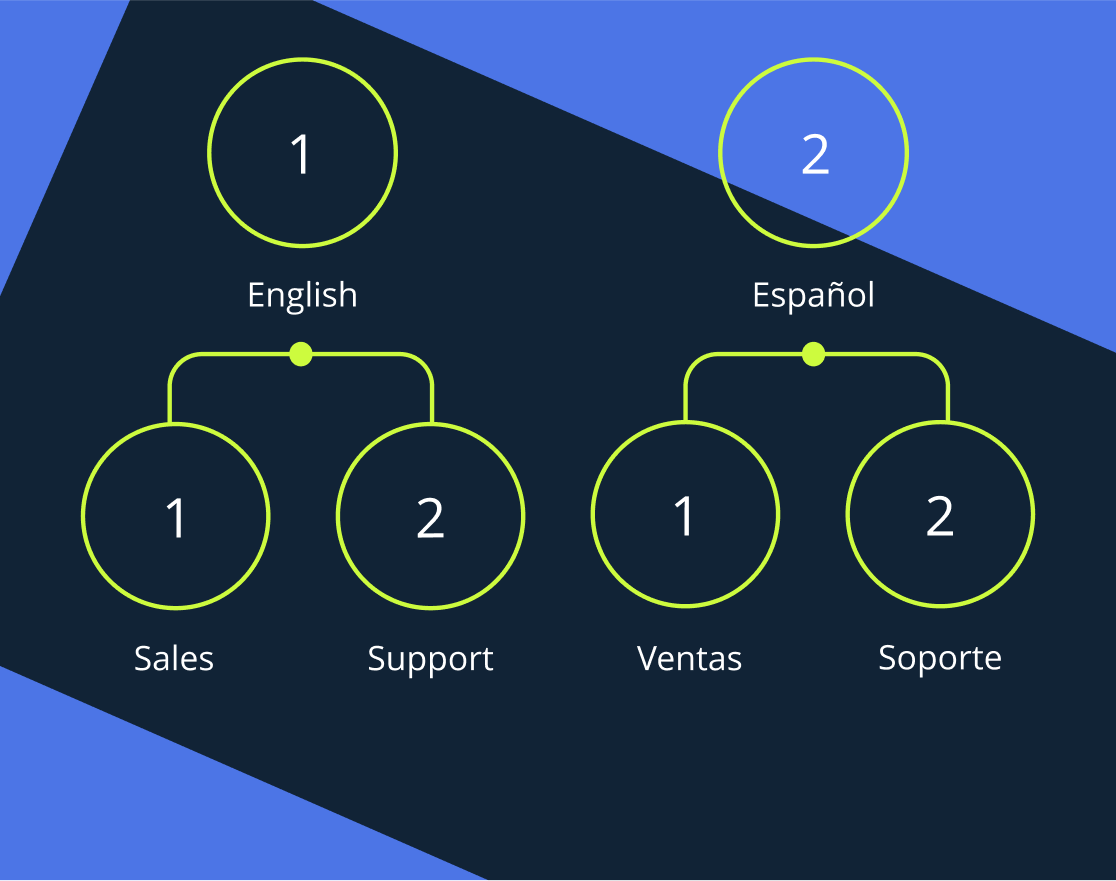In the realm of customer service and support, call centers play a vital role in connecting businesses with their customers. But what exactly is a call center, and how do they operate? Here we’ll be exploring the fundamentals of call centers, their operational processes, types, essential roles, required technology and equipment, as well as the industries that most heavily rely on call center customer service.
In this article we cover:
- What is a Call Center?
- How do Call Centers Work?
- Call Center and Contact Center: What is the Difference?
- Types of Call Centers
- Roles You Need for a Call Center Team
- Call Center Technology and Equipment Needed
- What Businesses Use Call Center Customer Service Mostly?
- Maximize Your Call Center’s Customer Service
What is a Call Center?
A call center refers to a centralized department or facility that handles a large volume of incoming and outgoing customer calls. Its primary purpose is to provide customer support, resolve inquiries, handle complaints, and offer product/service information. Call centers can be internal to a company or outsourced to specialized service providers.
How do Call Centers Work?
The call center working process consist of several parts:
- Dialing the Call Center: The caller initiates contact by dialing the designated phone number of the call center. This can be a dedicated line or a general customer support number.
- IVR (Interactive Voice Response): Upon connecting to the call center, the caller may encounter an Interactive Voice Response system. The IVR prompts the caller to select options using their keypad or provide voice inputs to navigate through the menu and direct their call to the appropriate department or service.
- Queueing and Waiting: If all agents are currently busy, the caller may be placed in a queue and informed about their position in line. They may hear hold music or periodic announcements about estimated wait times.
- Agent Assignment: Once an agent becomes available, the caller’s call is routed to an appropriate agent based on various factors like skills, availability, or departmental specialization.
- Agent Interaction: The caller is connected to the assigned agent who greets them and verifies their identity if necessary. The agent listens to the caller’s query or concern and engages in a conversation to provide assistance, support, or information.
- Issue Resolution or Service Provision: The agent works with the caller to address their query, resolve any issues, or provide the requested service. They may ask relevant questions, provide instructions, or access customer information from a CRM system to personalize the interaction.
- Call Conclusion: Once the caller’s query or issue is resolved, the agent ensures that the caller is satisfied with the provided solution or service. They may also summarize the call, provide additional information if needed, and ask if there is anything else they can assist with.
- Call Logging and Disposition: After the call, the agent logs relevant details, including call duration, nature of the inquiry, and any actions taken, into the call center’s system for future reference and reporting purposes.
It’s important to note that the specific steps and processes can vary depending on the call center’s setup, the nature of the business, and the capabilities of their call center software and systems.
Call Center and Contact Center: What is the Difference?
While the terms “call center” and “contact center” are often used interchangeably, there is a subtle distinction between them. A call center primarily focuses on handling voice-based interactions, such as phone calls. On the other hand, a contact center incorporates multiple communication channels, including phone calls, email, chat, social media, and more, to provide a broader range of customer engagement options.
Types of Call Centers
Call centers can be classified based on call types and their relationship to the organization.
By call type
- Inbound Call Centers: Primarily receive incoming calls from customers seeking assistance, support, or information.
- Outbound Call Centers: Primarily make outgoing calls to customers for various purposes, such as sales, telemarketing, surveys, or collections.
- Blended Call Centers: Handle both inbound and outbound calls, providing a versatile approach to customer interactions.
By organization type
- In-house Call Centers: Operated and managed directly by the organization itself, utilizing its own resources and personnel.
- Outsourced Call Centers: Partnering with specialized service providers to handle customer interactions on behalf of the organization.
- Offshore Call Centers: Outsourced call centers located in a different country from the organization’s base of operations.
- Virtual Call Centers: Agents work remotely, often from home, using cloud-based technologies to connect with customers.
Roles You Need for a Call Center Team
A successful call center requires a well-rounded team comprising various roles, including:
- Call Center Agents: Responsible for handling customer interactions, resolving issues, and providing support.
- Team Leaders: Supervise and support a team of agents, ensuring efficient call handling, adherence to protocols, and performance management.
- Call Center Managers: Oversee the overall call center operations, including strategy development, resource management, and goal attainment.
- Quality Assurance Analysts: Monitor and evaluate calls for quality control, identifying areas of improvement and providing feedback to agents.
- Training Specialists: Design and deliver training programs to equip agents with the necessary skills and knowledge for effective customer interactions.
Call Center Technology and Equipment Needed
To ensure smooth and efficient call center operations, the following technology and equipment are typically required:
- Automatic Call Distributor (ACD): Manages incoming calls and distributes them to available agents.
- Interactive Voice Response (IVR): Automated call handling by allowing callers to navigate through menu options using a keypad or voice input.
- Computer Telephony Integration (CTI): Integrates phone systems with computer systems to provide a seamless workflow and access to customer information.
- Customer Relationship Management (CRM) Software: Stores and manages customer data, interactions, and provides a unified view for agents.
- Headsets and Telephony Devices: High-quality headsets or telephony devices with noise-cancellation features for clear communication.
- Call Recording Systems: Capture and store call recordings for quality assurance, training, and compliance purposes.
- Reporting and Analytics Tools: Software that provides insights into call center performance metrics, allowing monitoring and optimization.
What Businesses Use Call Center Customer Service Mostly?
A high level of customer service in a call center is a critical aspect of various industries. Here are some of them:
- E-commerce and Retail: Call centers assist customers with order inquiries, product information, returns, and complaints.
- Telecommunications: Provide technical support, billing assistance, and service activation for phone, internet, or cable TV subscribers.
- Banking and Financial Services: Handle account inquiries, transactions, credit card support, fraud prevention, and dispute resolution.
- Healthcare: Assist patients with appointment scheduling, insurance queries, and general medical information.
- Travel and Hospitality: Support travelers with booking, reservation changes, travel information, and customer assistance during their trips.
Maximize Your Call Center’s Customer Service
Call centers are crucial components of many businesses, serving as their frontline for customer support and engagement. Understanding their functions, types, roles, and required technology enables organizations to optimize their customer service operations. By embracing effective call center practices, businesses can provide exceptional customer experiences, foster customer loyalty, and drive their overall success.





























